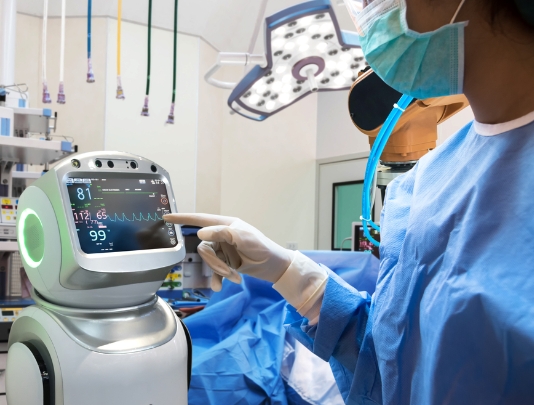Advances in Artificial Intelligence (AI) and robotics have revolutionized the healthcare industry, offering new solutions to improve patient care and outcomes.
AI and Robotics in Diagnosis and Treatment
AI-powered algorithms can analyze large amounts of medical data to diagnose diseases more accurately and efficiently than human doctors.
Robotic surgery systems enable more precise and minimally invasive surgical procedures, reducing patient recovery time and complications.
Improving Patient Care and Access
AI-powered chatbots and virtual assistants can provide 24/7 patient support, answer medical questions, and schedule appointments.
Robotic caregivers can help elderly and disabled patients with daily tasks, improving their quality of life and independence.
Enhancing Drug Discovery and Development
AI algorithms can analyze genetic data to develop personalized medicine tailored to individual patients’ needs.
Robotic platforms can automate the drug discovery process, accelerating the development of new treatments for various diseases.
Challenges and Ethical Concerns
There are concerns about the potential bias and lack of transparency in AI algorithms, which could lead to incorrect diagnoses and treatment recommendations.
Questions about patient privacy and data security arise with the use of AI and robotics in healthcare, as sensitive medical information is shared and stored electronically.
The Future of AI and Robotics in Healthcare
Despite these challenges, the potential of AI and robotics in healthcare is vast, with the promise of transforming the future of medicine.
As technology continues to advance, patients can expect more personalized, efficient, and accessible healthcare services that improve their overall well-being.

